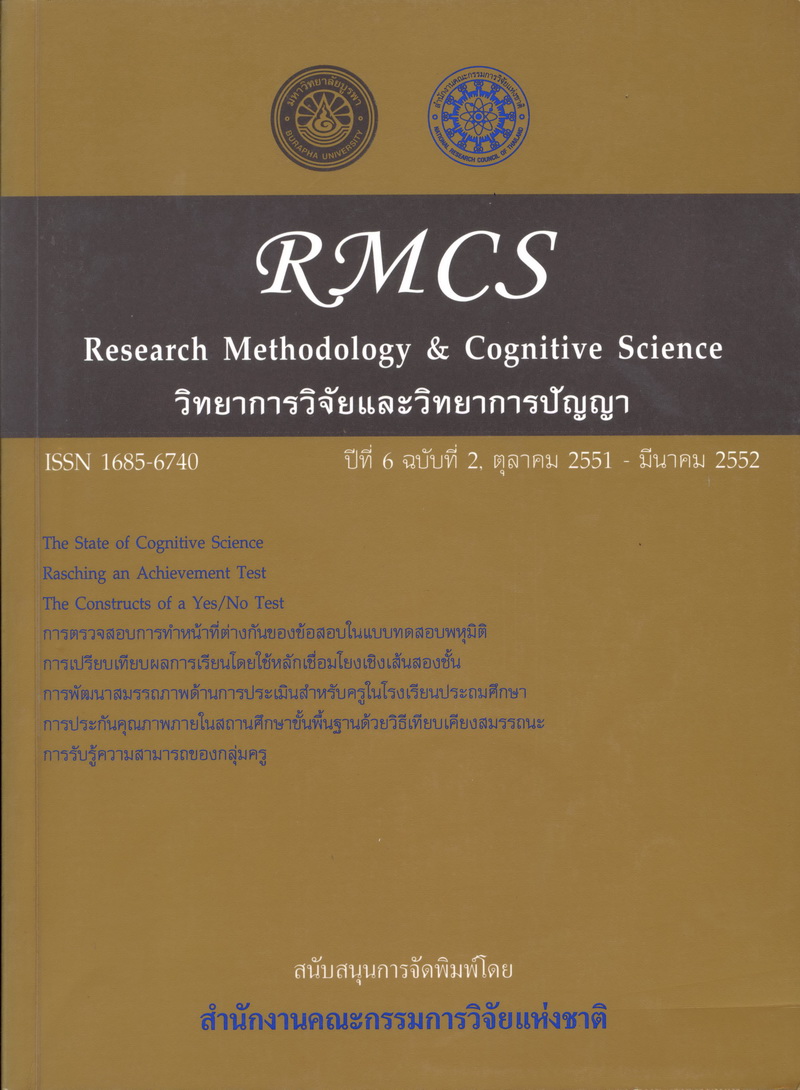Developing Evaluation Competency Among Elementary School Teachers: A Comparison of Training Results Between Traditional And School-Based Training
Main Article Content
Abstract
The purposes of this study were 1) to compare the effectiveness of training using a variety
of procedures, such as traditional training and professional trainers; school-based training with peer teacher trainers; and school-based training with professional trainer. 2) to study training results by the development of evaluation competency ,attitudes towards evaluation, and evaluation self-efficacy.
The sample involved three Bangkok elementary schools, with 15 teachers in a control
group, 15 teachers in an experimental group, and 15 teachers in another experimental group. Quantitative research instruments included a test measuring evaluation competency, rating scales measuring attitude towards evaluation, and evaluation self-efficacy. Qualitative research instruments were product assessments, checklist forms, and interview forms. Univariate and multivariate methods were used to analyze the data.
The major findings were: 1) School-based training with peer teacher trainers resulted in
the highest training product in terms of evaluation competency. 2) The training products from school-based training with professional trainer were of higher quality and number than schoolbased training with peer teacher trainer and traditional training with professional trainer. After training, all groups had positive attitudes towards evaluation, and evidenced high evaluation self-efficacy.

